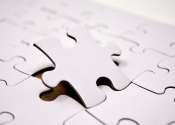Nanocrystals to deliver oxygen to brain tumours
Glioblastoma, the most widespread and lethal primary brain tumor in adults, is notoriously difficult to treat due to the surrounding lack of oxygen essential to the effectiveness of current treatment.
Aug 4, 2020
0
2









